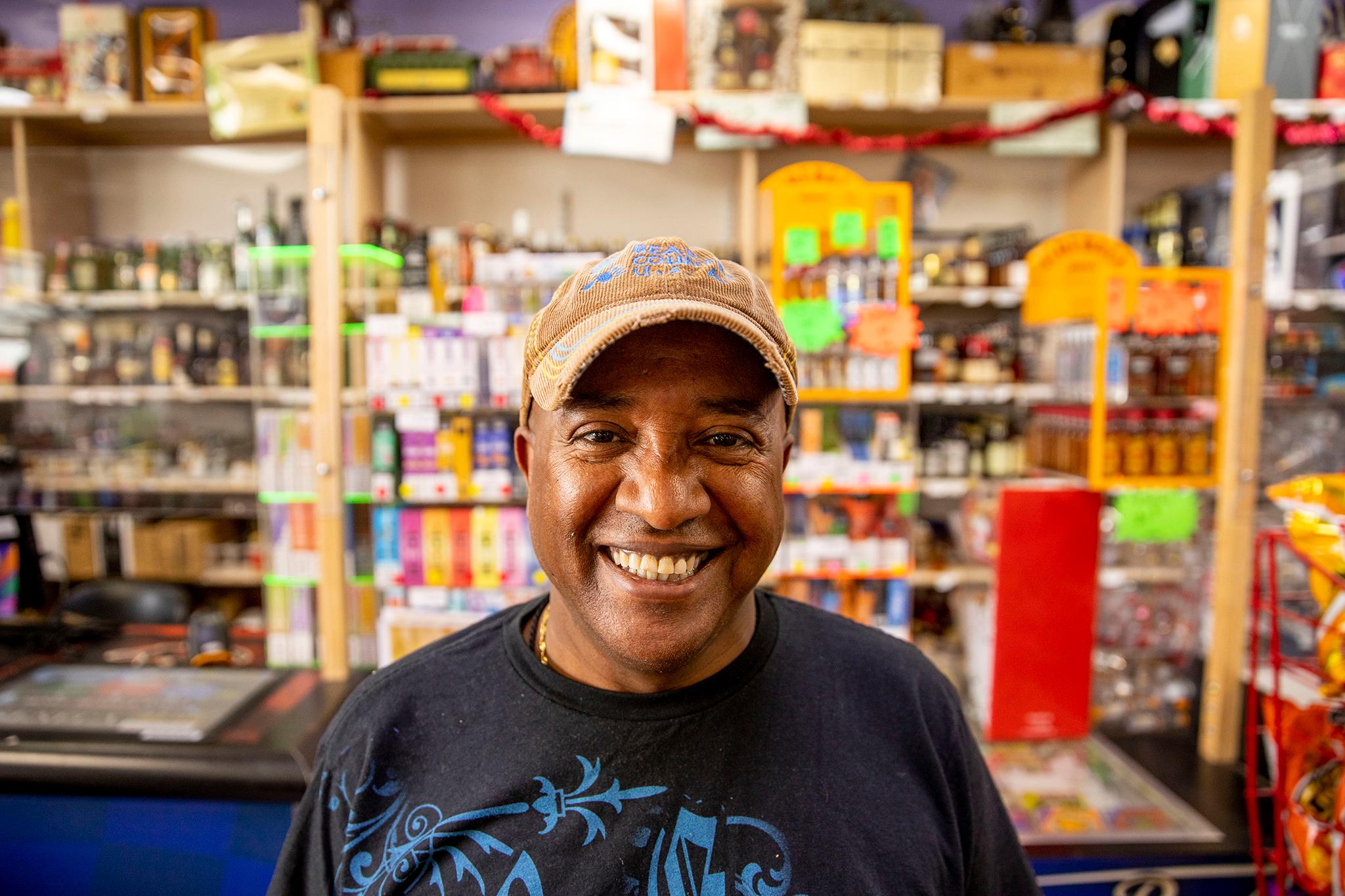Aurora liquor store owner Girum Alemayehu points to the plywood covering the windows of G&E Liquor Store, at 18680 E. Iliff Avenue, the shop he has run with his wife since 2005. Last month, thieves broke in -- twice in one night. Crime is up -- so is the cost of living and doing business. But it's not just thieves Alemayehu said are threatening his shop.
Some industry players believe they should be allowed to build an unlimited number of liquor store chains; big-box stores and grocery stores want to sell wine; and companies like DoorDash hope to be allowed to deliver liquor.
A trio of ballot measures that voters are considering -- propositions 124, 125 and 126 -- could make that happen. Their promise: freedom, convenience and more opportunity.
As the head of the Ethiopian and Eritrean Liquor Store Owners Association, Alemayehu's working with dozens of liquor stores owned by members of his community that are trying to convince voters to oppose those propositions.
He and his fellow mom-and-pop liquor store owners argue those new rules could destroy their businesses. The policies will make the market too friendly to the likes of Walmart and King Soopers. Local Colorado companies, most of which are owned by women and many by immigrants, will be competing on an uneven playing field and will be crushed.
Chris Fine, the executive director of the small liquor store trade group the Colorado Licensed Beverage Association, told Denverite that of the liquor store owners his group represents, almost two-thirds speak English as a second language. He believes that trend is reflected in the roughly 1,600 liquor stores across the state.
Companies including Kroger, Safeway, Target and Whole Foods are funding a multi-million dollar campaign in support of the measures -- a quantity of funding that opponents of the propositions, largely small-liquor store owners, can't match.
Sheila MacDonald, a representative of the Wine in Grocery Stores, argued wine in grocery stores would make buying alcohol more convenient for Coloradans. Proponents of third-party delivery make similar arguments about how buying alcohol should be easier for Colorado customers.
"They want choice," MacDonald told CPR News earlier this year.
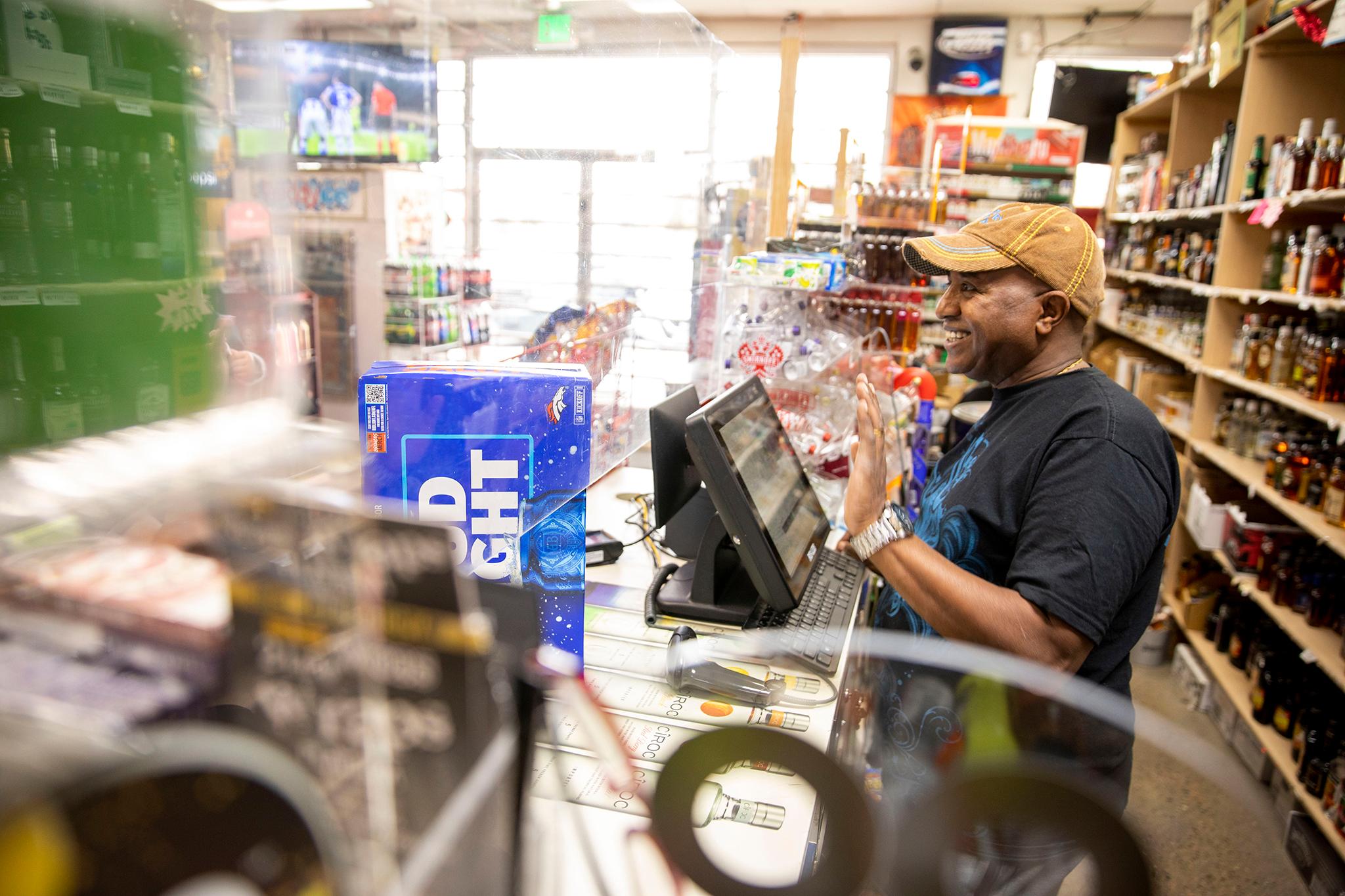
The campaign to expand the number of stores a chain is allowed to operate is being promoted as a boon for small businesses -- and some small liquor store owners are on board.
But Alemayehu said most of the liquor store owners he works with have a hard enough time keeping one store stocked to dream about opening an unlimited number across town.
Here's how Alemayehu got his start.
Alemayehu's story started in Ethiopia, where he was teaching freshmen Introduction to Philosophy. He received a Fulbright scholarship and came to the United States to attend graduate school at Columbus State University in 1991.
While he was here, the government that had sent him abroad fell out of power and new leadership emerged in Ethiopia, so he opted to stay in the United States and work. He found a job as a housekeeper and soon "took every kind of job that was available at the time," he said, sometimes working three at a time.
He eventually landed a gig with FedEx, which paid better than his previous employers, and allowed him to save money to open his own business.
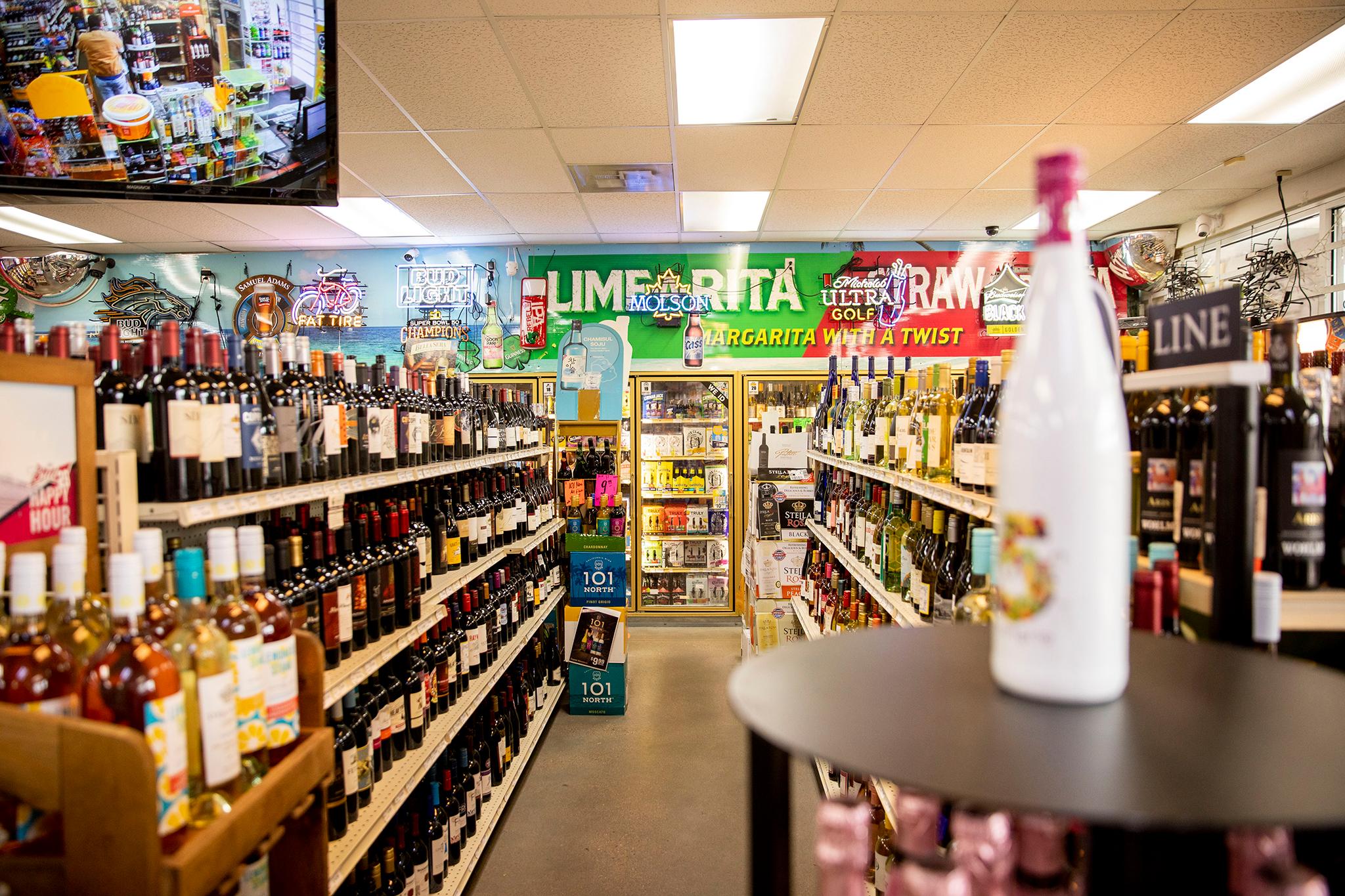
Alemayehu drew inspiration from a good friend who owned a liquor store in the Front Range and opened his own in 2005. He opened G & E Liquors, at 18680 E. Iliff Ave. and he's been there since.
Growing the business has cost a lot, but what he's earned has helped him support himself his family. All three of his children went to Colorado State University, and he paid their way. One is still in school, another is a neurologist and the third is working on becoming a lawyer.
He also sends some of his earnings back to his friends and family in Ethiopia.
"In Africa, they say, if one succeeds in the group, the whole group will survive," he said. "So when I succeed, I share whatever I can with the neighborhood, the family or the people I know back there."
If the proposals on the November ballot this year pass and affect business so much that he loses his store, Alemayehu fears will no longer be able to share with family back home.
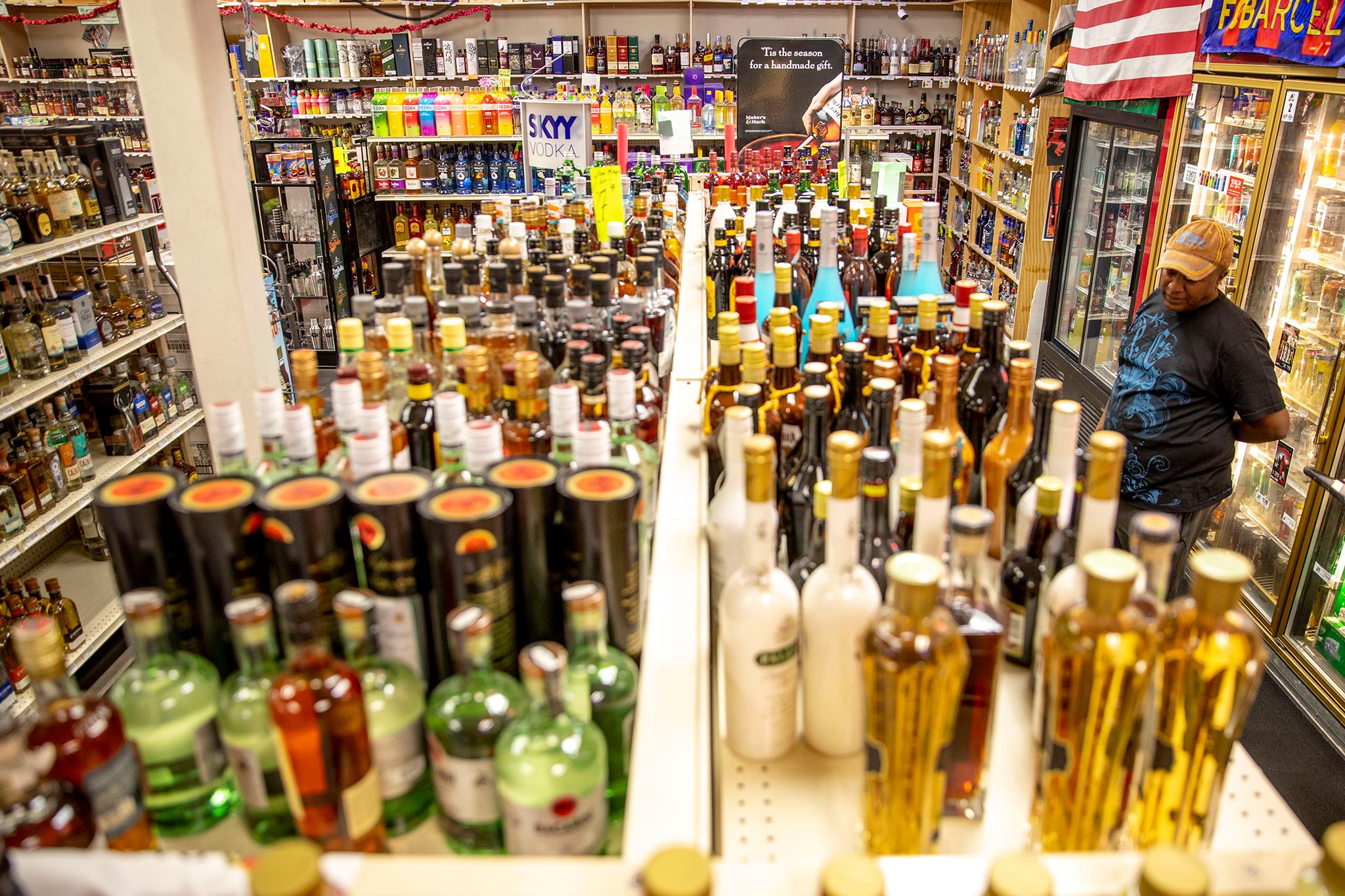
"I don't think Walmart is hurting for profit because they have so many things to sell," Alemayehu said, wondering why big-box stores are trying to compete with mom-and-pop liquor stores when the stakes are so much higher for small businesses. "It's survival of me, my family and extended family."
While Alemayehu said he respects that capitalism is the driving economic system, he also hopes people value family, neighborhood and community.
"We shouldn't abandon that," he said. "This is a neighborhood store. I made a lot of friends. I don't have anybody who's a friend in Walmart. I go and show up and come out. Here, I have multiple friends who come to my kid's birthday, graduation. I make a lot of family and extended family here -- friends. I don't think that's going to be in Walmart, because you just become a number. Everybody is a number shopping there and going out. Here, we are friends and family."
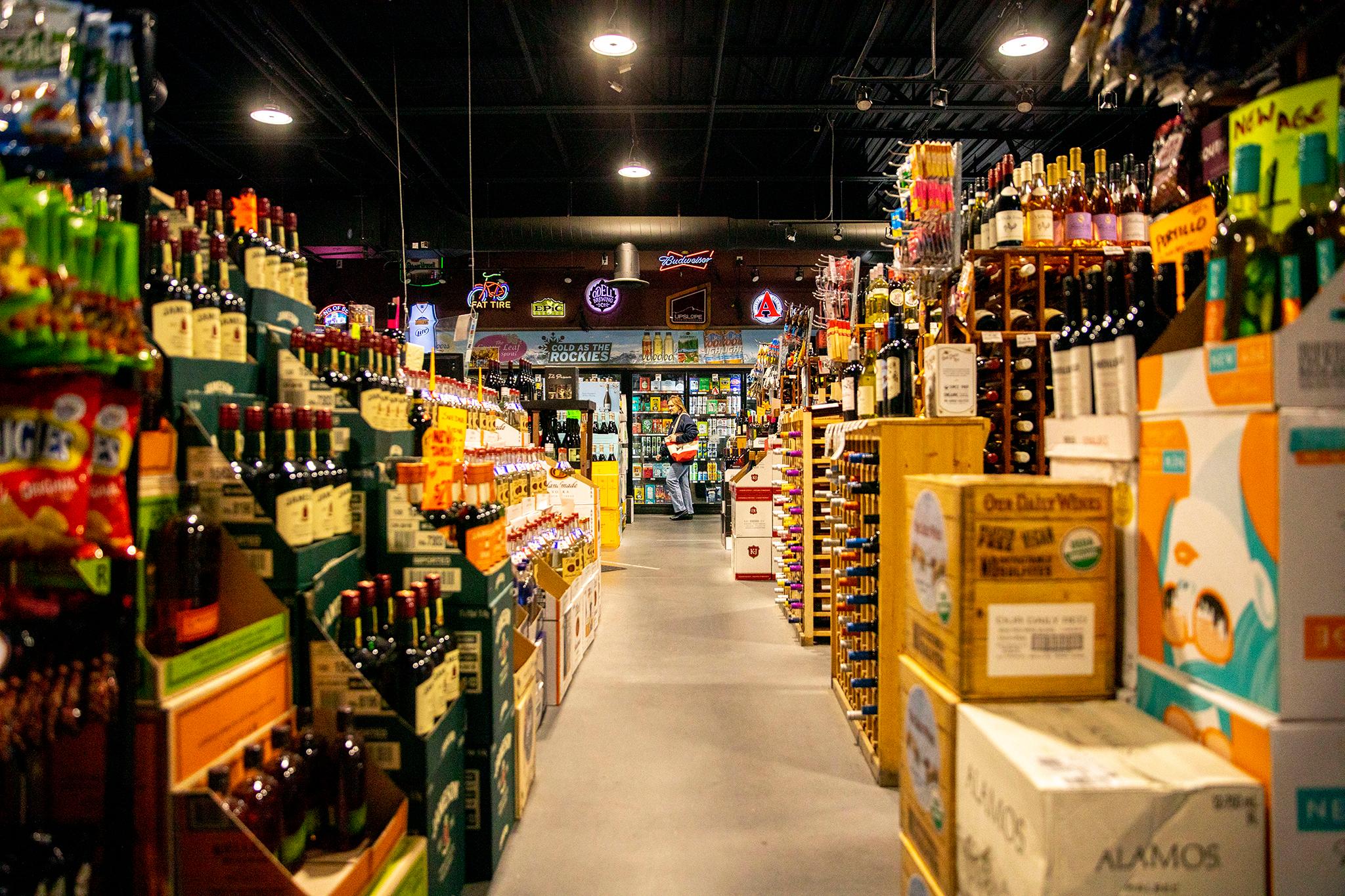
A few miles away, in Central Park, husband and wife co-owners Omar and Rochelle Malik worry about the fate of their shop, Grape Leaf Wine and Spirits at 7342 E. 29th Ave., which they have run since around 2000.
"We opened this place when Stapleton was just getting going," Omar said. "There was actually nothing here. It was all runways behind us there. And we were one of the first things that happened in this development."
A lot has happened since Grape Leaf Wine and Spirits opened, including a name change from Stapleton to Central Park and the arrival of many national chains.
The shop is a short walk away from a King Soopers and several blocks removed from a Walmart.
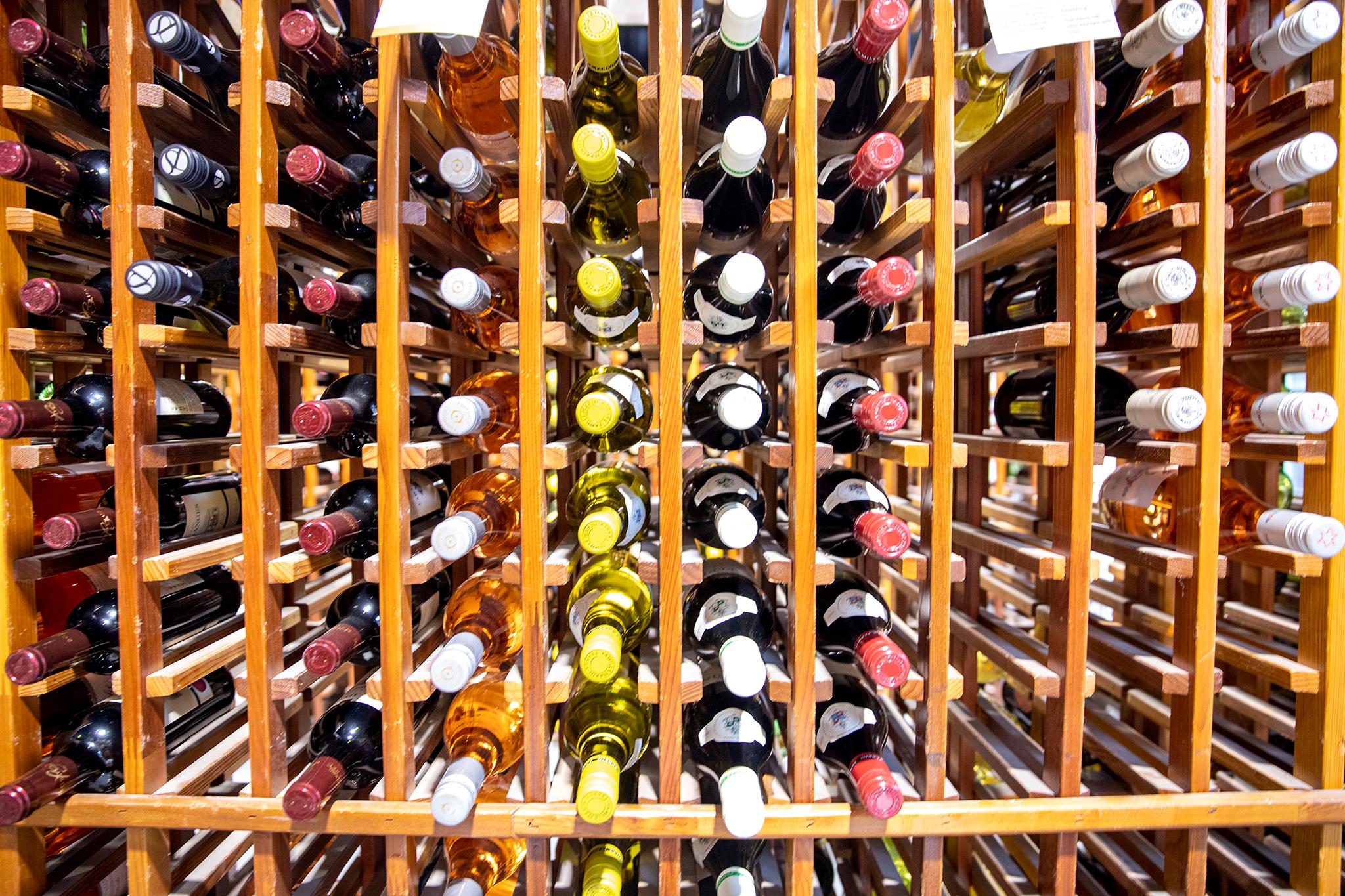
The couple experienced firsthand what happened when King Soopers started selling beer in 2019. Grape Leaf Fine Wines and Spirits lost 20% of its beer sales. Fortunately for business, the shop mostly focused on selling specialty wine at the time, allowing it to remain competitive.
The Maliks' wine sales would be under threat if voter approve Proposition 125, which allows grocery stores to sell wine.
"This is a very heavy wine store," Omar said. "As you can see, there's mostly wine in here. What we're talking about now is going to be another hurt to us, and I think it's gonna be drastically bigger than the last one. So we're looking at maybe 30 to 40%, this time. You keep chipping away -- we're honestly not going to have any choice but to go out of business."
The Maliks also worry that if grocery stores start selling wine that minors will have an easier time swiping bottles off the shelf. The couple also fears that people under 21 will scam delivery drivers. Those changes could lead to more consumption by underaged people.
Like Alemayehu, Omar is troubled when he sees advertisements for Proposition 124 that claim that lifting the cap on how many liquor stores a company can own would benefit shops like theirs. He said he's spoken to hundreds of liquor store owners and nobody sees how it would help their business.
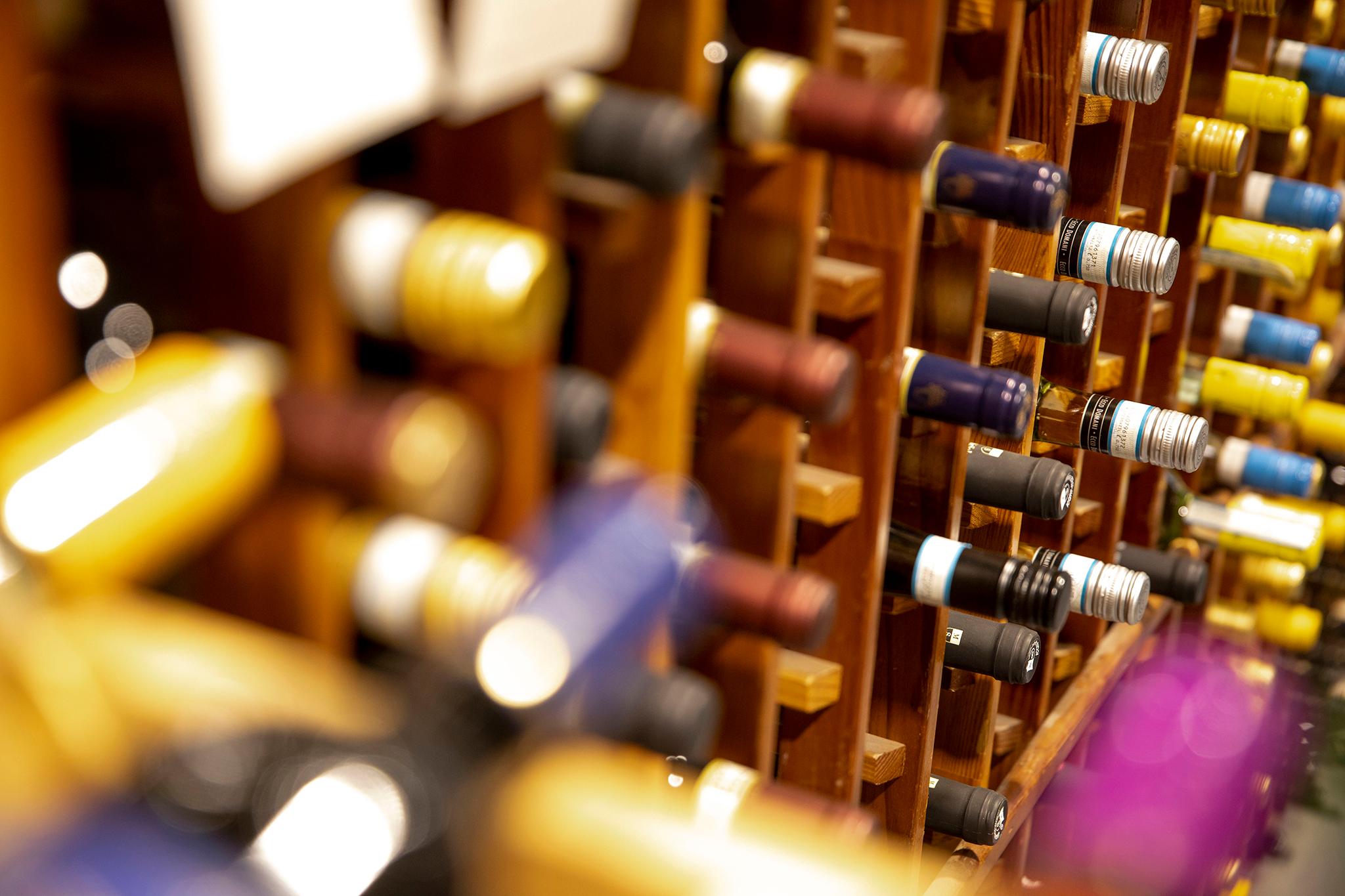
"I don't financially have the money to open up six, eight [or] 10 liquor stores tomorrow," he said. "And the good majority of people out there that own liquor stores, even the big successful ones, don't have the resources to open up that many stores. So when we see advertising saying that liquor stores want this and liquor stores are for this, it's truly a lie."
For Omar, owning a liquor store is a family tradition he inherited from his father and he hopes to pass down to his children.
Omar's father immigrated to the United States from Pakistan in the late '60s. He came to the states to attend school in Illinois and later Tennessee and fell in love with the country.
"That whole American Dream was something he wanted to live for," Omar said. So his father joined the Army.
In the '70s, he moved to Denver and opened Oneida Liquors, at 23rd Ave. and Oneida St. a Park Hill staple.
"As a kid, I would go in there and you know, see it happening. I thought it was the coolest thing in the world," said Omar, who went on to work at restaurants and the store, before opening his own shop in Central Park.
"It's that American Dream that my dad sought for," he said. "It rubbed off on me, and that's what I strove for. Now, 21 years later, here we are. Now we're fighting for our business and fighting for our livelihood."
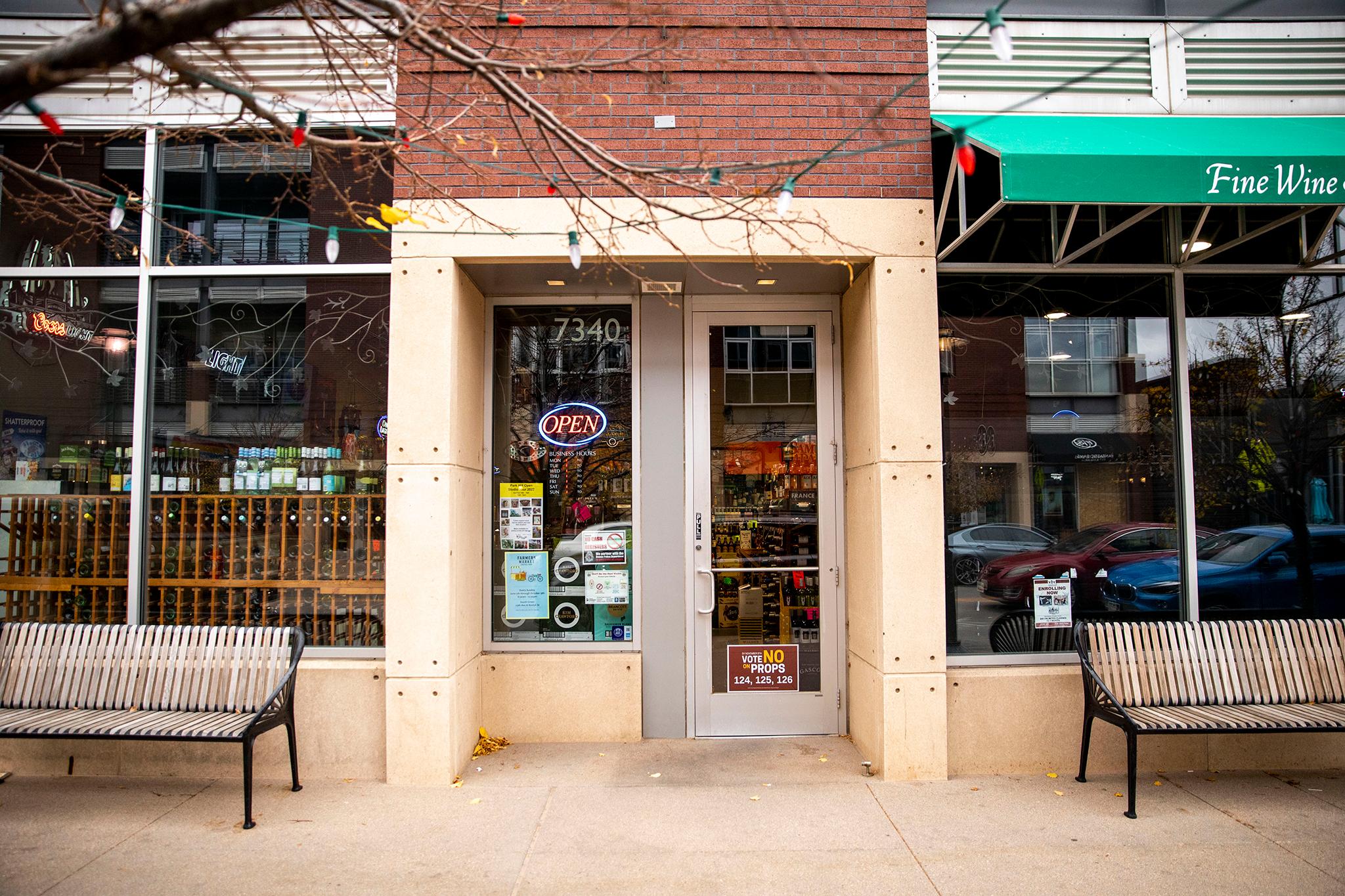
For Omar, that fight is about more than just building personal wealth.
He views his six employees, all but one of whom have been there for over a decade, as family, and he doesn't want to have to fire anybody.
"At the end of the day, that's my fear," Omar said. "That's my biggest concern at this point is to tell people that's worked for me for 12 to 15 years: 'Hey, guys, I'm sorry. You know, if you want to work in the liquor business that you love and enjoy, now your option is going to be go to Kroger, and you'll be number 1,750,000. And, you know, that's what will be written on the top of your check as well. And that this is what you got to look forward to.'
"I'm hoping I don't have to have that conversation."

